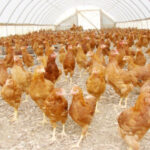After two weeks of protest over the introduction of the Vehicle Identification Number by customs officers, clearing agents have once again threatened to shut down the nation’s seaport over the introduction of a 15 per cent National Automatics Council (NAC) levy.
The federal government had provided in the finance Act 2020 for a reduction in the import levy on cars from 30 per cent to five per cent, while import duty on tractors is to drop from 35 per cent to five per cent as well as reduction on imported duty on mass transit vehicles for the transportation of more than ten persons and trucks from 35 per cent to 10 per cent respectively.
Emir of Kontagora suspends chief over misconduct
132 Nigerians die of Lassa fever within 4 months
But stakeholders in the auto industry had in 2021 warned that the billions of naira invested in the nation’s automotive industry might become a waste venture if the federal government goes ahead with its plans to reduce the levy on imported vehicles from 35 per cent to five per cent without applying same on completely knockdown and semi knockdown (CKD and SKD) units.
About 35 auto assemblies’ plants were licensed between 2014 and 2020.
Worried by the decision of the Nigeria Customs Service to jack up the levy from the five per cent as recommended by government to 15 per cent on all vehicle imports through the ports, freight forwarders on Monday vowed to shut down the various Roll on Roll off (RoRo) ports in Lagos.
The group said the decision to shut down commercial activities at the seaports in Lagos was reached Monday, April 11, 2022.
Vice President of Association of Nigerian Licensed Customs Agents (ANLCA), Dr Kayode Farinto, who directed members not to pay the NAC 15% Levy, described it as exploitative policy and an attempt to swindle innocent Nigerians.
“Let us collectively resist this; should you see any NAC levy whenever you want to make your declaration, do not assess this declaration. It is another attempt to swindle innocent Nigerians and force them to pay by some fifth columnist. Please resist from Monday,” he said.
Reacting to the threat, the Service National Public Relations Officer, Timi Bomodi said: “It is instructive to note that domestic fiscal policy on the importation of motor vehicles and other items is targeted at growing the local economy in these sectors. The focus of NCS is on implementation of these policies in the hope that it achieves its desired objectives in line with National Automotive Policy and other fiscal policies of government.”
 Join Daily Trust WhatsApp Community For Quick Access To News and Happenings Around You.
Join Daily Trust WhatsApp Community For Quick Access To News and Happenings Around You.


